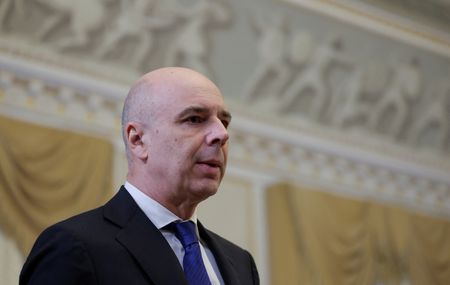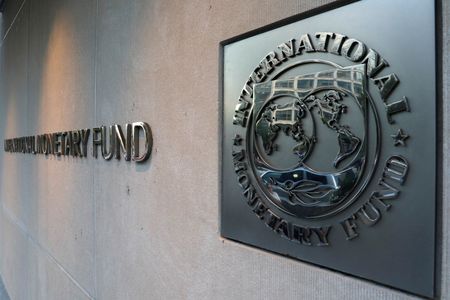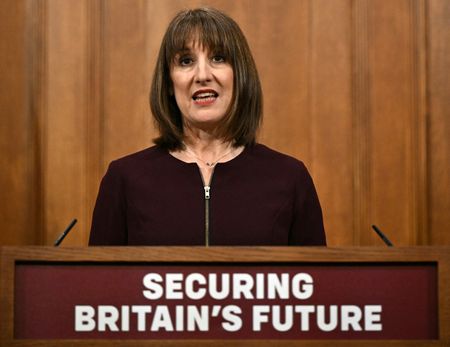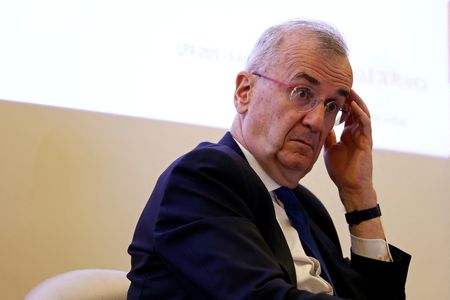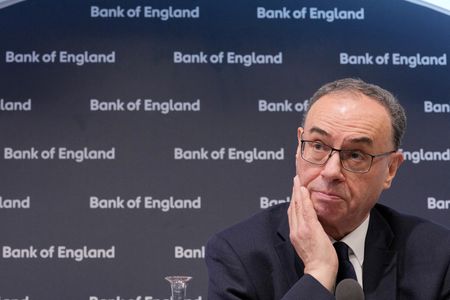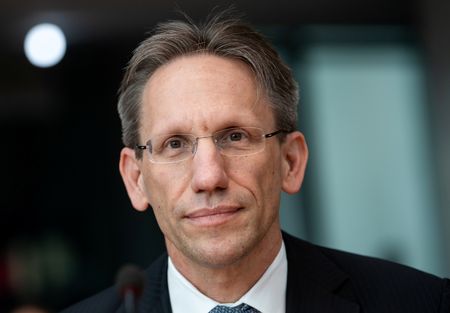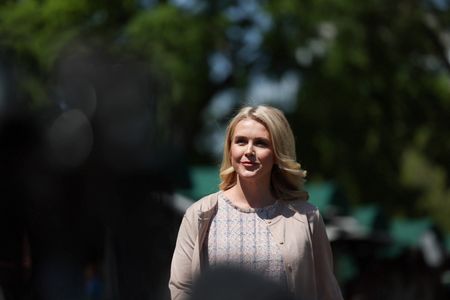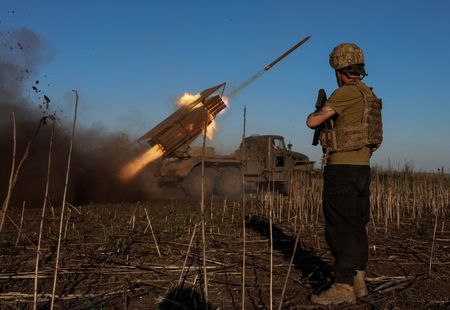By Olesya Astakhova and Darya Korsunskaya
MOSCOW (Reuters) -Russia needs to boost its fiscal reserves in the face of global turbulence to ensure at least a three-year coverage of budget spending if the oil price remains low for an extended period, Finance Minister Anton Siluanov said on Wednesday.
Currently, the budget rule stipulates that oil revenues above the ‘cut-off’ price of $60 per barrel are sent to the rainy day National Wealth Fund (NWF). The liquid part of the fund, held in cash, is then used to cover budget shortfalls.
Siluanov told an annual meeting of ministry staff that the current ‘cut-off’ price does not meet new challenges, calling for its revision to boost contributions to the rainy day fund.
He called for a new rule to “bring the liquid assets of the NWF to a level that ensures three years of uninterrupted financing of expenditures in the event of stress in the oil market.”
The NWF has become the main source of financing Russia’s persistent budget deficit. The fund’s liquid assets have dropped by about two-thirds to just $39 billion from $112.7 billion before the Ukraine conflict.
“The current global situation requires special attention to the resilience of public finances to various scenarios of global economic development,” Siluanov said, referring to concerns over the global economy due to trade wars triggered by U.S. President Donald Trump’s tariffs.
Revision to the ‘cut-off’ price could also put downward pressure on the rouble, which is up by 38% against the U.S. dollar this year, as the state will buy foreign currency, predominantly yuan, to replenish the fund.
Russia has cut its forecast for the average price of Brent crude in 2025 by nearly 17% from an estimate last September, according to documents obtained by Reuters.
The country has also reduced its forecast for 2025-2027 oil and gas export revenues due to weaker oil prices, expecting proceeds to fall by 15% this year, according to the documents.
This places additional strain on the budget, already burdened with high defence spending.
The Russian central bank warned this month that oil prices could be lower than forecast for several years on reduced global demand.
“The main risk now is the escalation of trade wars and, consequently, the reduction of export opportunities for countries, including Russia,” Siluanov said.
(Reporting by Darya Korsunskaya and Olesya Astakhova, writing by Gleb Bryanski, editing by Alexandra Hudson)


